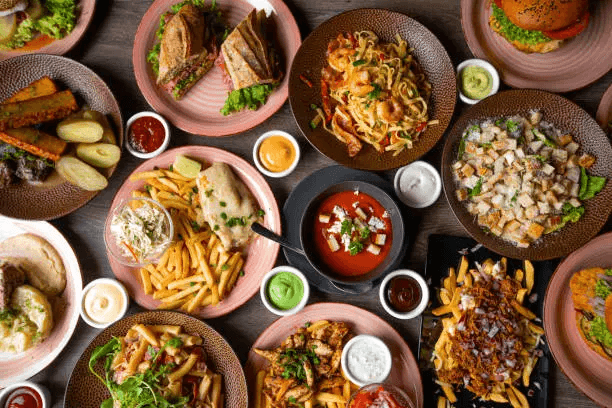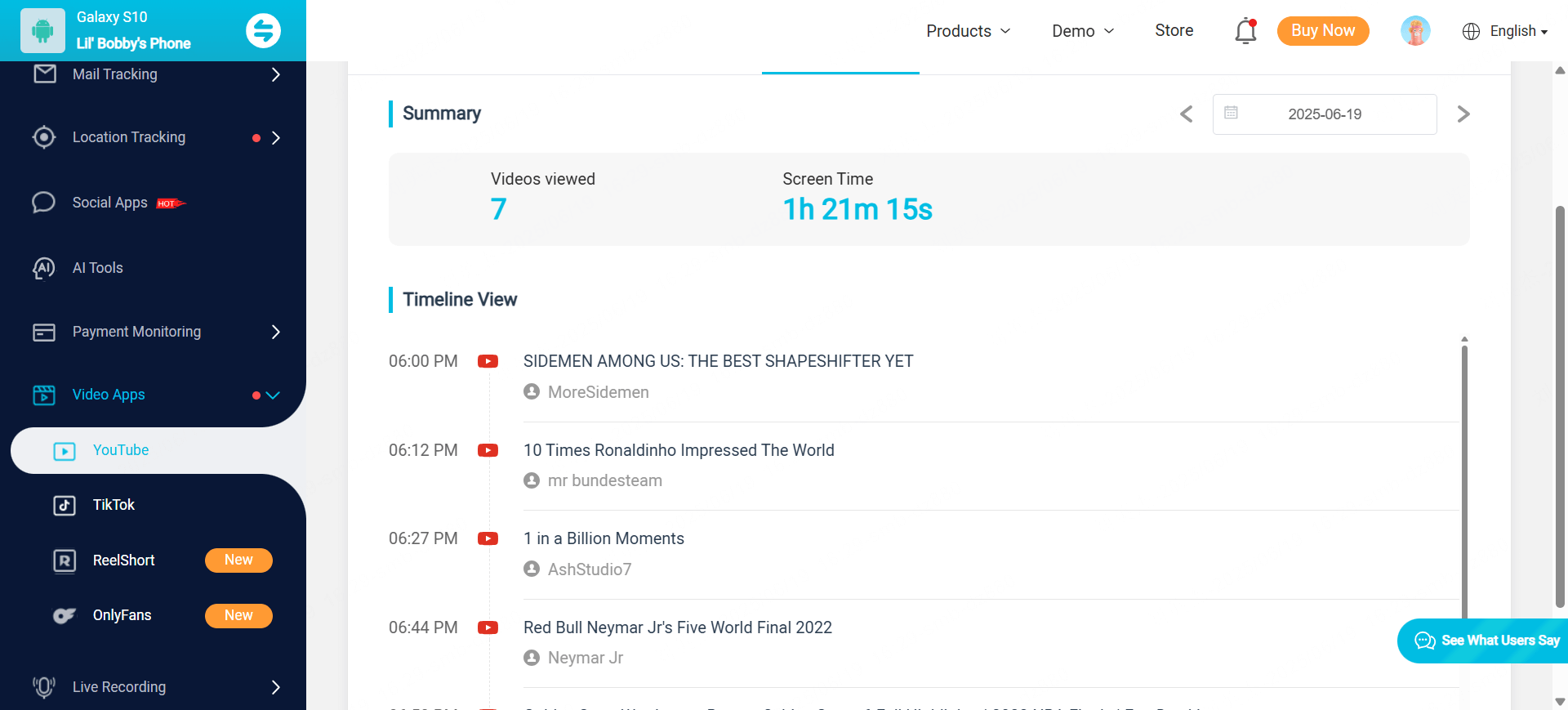ClevGuard Support: Monitor Devices with Others' Permission.

Table of Contents
Mukbang has become a global internet phenomenon, attracting millions of viewers across YouTube, TikTok, and other platforms. Originating from South Korea, this trend involves creators filming themselves eating large quantities of food while interacting with their audience in real time or through recorded videos.
While seemingly harmless at first glance, mukbang poses several concerns for parents. Its appeal among children and teens—combined with subtle links to disordered eating, unrealistic body expectations, and exposure to inappropriate content—makes it worth a closer look.
This article aims to explain what mukbang is, explore its appeal to young viewers, highlight potential risks, and provide actionable steps for parents to guide safer viewing experiences.
What Is Mukbang?
The word mukbang comes from the Korean words "meokneun" (eating) and "bangsong" (broadcast), forming a term that translates loosely to "eating broadcast." These videos typically feature a host consuming large portions of food while speaking directly to the camera.
Mukbang content can vary widely. Some creators film ASMR mukbangs, where the focus is on soothing eating sounds—crunching, slurping, chewing. Others perform cookbangs, which include food preparation before eating. These formats are often informal but draw millions of views due to their sensory nature and the charisma of the host.
While this genre may appear lighthearted, understanding what is mukbang is essential for identifying the subtle messages such content can convey—especially to young, impressionable audiences.
Why Do Kids and Teens Watch Mukbang?
Parents often wonder: why do kids like mukbang? The reasons are more layered than you might think.
Entertainment & Escapism: Many children see mukbangs as fun, quirky, or humorous. Watching someone attempt a food challenge can be oddly satisfying or comedic.
ASMR Appeal: Some viewers experience a calming reaction to the sounds of eating—chewing, crunching, and slurping—which is why ASMR mukbangs have gained such popularity.
Exploring Food & Culture: Mukbang videos often showcase a variety of global dishes, piquing curiosity about different cuisines or unusual snacks.
A Sense of Community: For children eating alone or feeling isolated, the conversational tone of a mukbang can simulate companionship. The chatty host acts like a virtual dining partner.
Influencer Popularity: High-profile creators like Nikocado Avocado or celebrities dabbling in mukbang, such as Megan Thee Stallion, contribute to the genre's mainstream appeal.
In this sense, mukbang appeal combines visual, auditory, and social triggers—making it particularly engaging for a digital-native generation.
Is Mukbang Dangerous? Key Risks to Know
While not inherently harmful, mukbang content has drawn criticism from medical professionals and educators due to the following concerns:
1. Disordered Eating
Watching people binge eat enormous meals may normalize or glamorize unhealthy eating habits. In some cases, young viewers attempt to imitate these behaviors, leading to potential health complications.
2. Body Image Distortion
Mukbang creators often appear thin or unbothered by the extreme portions they consume. This can contribute to skewed perceptions of food intake and body expectations.
3. Deceptive Editing
Some creators chew and spit out food off-camera, or film over multiple sessions—creating an illusion of superhuman consumption.
4. Inappropriate Content
Some mukbangs veer into sexualized content or branch into "sulbang" (alcohol-based eating videos), which can expose minors to risky media without clear age gating.
5. Food Waste & Ethics
Critics also note the environmental and moral implications of wasting large quantities of food for entertainment.
According to a 2020 study by Strand and Gustafsson, mukbang can either be a constructive tool or a destructive force" depending on the viewer's mental and physical health—making parental awareness crucial.
Signs Your Child Might Be at Risk
While watching the occasional mukbang isn't necessarily a problem, certain behaviors may signal deeper issues:
- Compulsive Viewing: Spending extended periods binge-watching food content.
- Meal Avoidance: Skipping real meals to "save appetite" or watching mukbang instead of eating.
- Mimicry: Attempting challenges such as eating large quantities or unusual combinations of food.
- Emotional Cues: Expressing guilt, shame, or fixation on appearance after watching such videos.
When combined, these signs may indicate that mukbang is having more than just entertainment value—and may require a supportive conversation.
What Parents Can Do: Practical Safety Tips
Fortunately, there are clear and proactive ways to support your child:
Watch Together: Co-viewing allows you to discuss content in real time and spot red flags early.
Talk Openly: Ask what they enjoy about mukbang, and use that as a springboard to discuss body image, eating habits, and digital safety.
Set Healthy Limits: Limit screen time and avoid content featuring excessive eating or sensationalism.
Check Watch History: Platforms like YouTube allow you to view watched videos—helpful for staying in the loop.
Use Parental Control Tools: A trusted Parental Control App can help you filter inappropriate videos, manage usage, and maintain digital boundaries.
Support Safe Content Creation: If your child wants to become a mukbanger, guide them toward balanced, creative formats. Avoid pressure to perform risky or extreme eating for views.


An Array of Amazing Features
- Track cell phone location in real time and view location history
- Check all incoming and outgoing calls & SMS
- Spy on social media apps like WhatsApp, Instagram, Snapchat, Facebook, Viber, WeChat and more
- Remotely access the files on the target phone, like contacts, photos, call logs, etc.
For more context around related online trends that attract kids, explore our article on What Is a VTuber? and What Is Skibidi Toilet?, both of which are increasingly shaping youth internet culture.
Final Thoughts
Mukbang can offer entertainment and cultural insights—but it's also a content category that requires scrutiny, especially for younger viewers. As a parent, the goal isn't to ban content blindly, but to engage meaningfully with what your child consumes.
By staying involved and using tools like a Parental Control App, you can help your child develop critical digital literacy and emotional resilience.
Remember: awareness is the first step, but ongoing conversation is what ensures long-term digital wellbeing.
FAQs
1What does mukbang mean in Korean?
Mukbang comes from "meokneun" (eating) and "bangsong" (broadcast), meaning "eating broadcast."
2Is mukbang bad for children?
It depends. Some mukbangs are harmless, but excessive or extreme content may promote disordered eating.
3How can I block inappropriate mukbang content on YouTube?
Use YouTube's restricted mode, set up supervised accounts, or apply filters via a parental control app.



